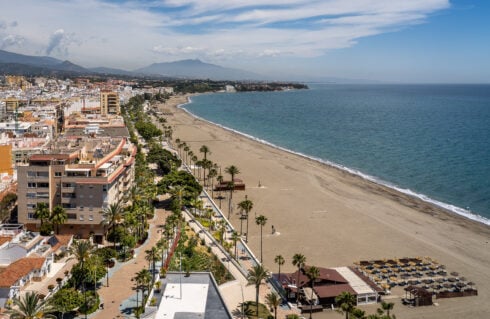
IN my previous column, we covered the two taxes vendors have to pay upon the sale of property.
While the first of these, municipal capital gains tax (Plusvalía), is levied on the property itself, the second, income tax (Impuesto sobre la Renta), can vary greatly.
Two factors come into play when working out how much you may have to pay: your place of residence and your earnings during the fiscal year the sale is completed.
For residents, the taxable base includes what you receive from work (renta general) and savings (renta del ahorro), while non-residents are only liable for tax on the latter.
But as the Spanish Tax Agency (better known as Hacienda) classes capital gains that arises from property sales as savings, everyone ends up paying one way or another. The difference is that residents can mitigate tax by accounting for deductibles, while non-residents cannot.
 To calculate exactly what you can include when determining the amount of CGT you need to pay, I checked with our lawyer friend, Adolfo Martos Gross, a partner in the Costa del Sol firm of GAM Abogados, to ensure what follows is in line with the letter (and numbers) of the law. He explains that deductible expenses can be divided into those paid on purchase, those incurred during ownership, and those due at the time of sale.
To calculate exactly what you can include when determining the amount of CGT you need to pay, I checked with our lawyer friend, Adolfo Martos Gross, a partner in the Costa del Sol firm of GAM Abogados, to ensure what follows is in line with the letter (and numbers) of the law. He explains that deductible expenses can be divided into those paid on purchase, those incurred during ownership, and those due at the time of sale.
The first covers fees for your lawyer, the notary and the Property Registry, as well as Transfer Tax (Impuesto de Transmisiones Patrimoniales) or VAT/Stamp Duty, depending on the type of property you bought. The next includes any improvements, but not routine maintenance. These could be an adding an extension or redoing a bathroom, but must be a permanent change that enhance the space, habitability or useful life of the property.
Adolfo says that Hacienda will ask to see invoices for work done, so ensure you get them and keep them in a safe place. The final category comprises commissions paid to estate agents, additional legal fees and Plusvalía tax (see above).
When you add up the costs that can legally be deducted, these can be considerable, so it’s worth getting some good advice from your lawyer or tax advisor before filling out the form. As an example, let’s imagine an apartment in Estepona that was bought for €300,000 in 2013 and sells for €400,000 in 2017.
 If you take into account €24,000 (8%) in transfer tax, €1,500 (around 0.5%) for notary and registry fees, and €3,630 (usually 1%, plus 21% VAT) for a lawyer, that’s already nearly 10% to sum on top of the purchase price. If you spend €20,000 on a kitchen, double-glazing and wooden floors, you can include that as expenses, too. You can also subtract, let’s say, €2,000 for Plusvalía, €4,840 in lawyer’s fees, and €24,200 for estate agent commissions, discounting more than 10% from the sale price.
If you take into account €24,000 (8%) in transfer tax, €1,500 (around 0.5%) for notary and registry fees, and €3,630 (usually 1%, plus 21% VAT) for a lawyer, that’s already nearly 10% to sum on top of the purchase price. If you spend €20,000 on a kitchen, double-glazing and wooden floors, you can include that as expenses, too. You can also subtract, let’s say, €2,000 for Plusvalía, €4,840 in lawyer’s fees, and €24,200 for estate agent commissions, discounting more than 10% from the sale price.
That results in a declarable capital gain of less than €20,000, rather than a nominal profit of €100,000. Given that residents of Spain pay CGT on a sliding scale of 19%-23%, that represents a significant saving. Sadly for non-residents, the same rule does not apply and they are required to pay CGT at a flat rate of 19%.
Click here to read more News from The Olive Press.








